
Culture
09:51, 07-Jul-2018
Minor Heat: The Chinese wisdom of keeping cool in summer
Updated
09:30, 10-Jul-2018
By Ai Yan
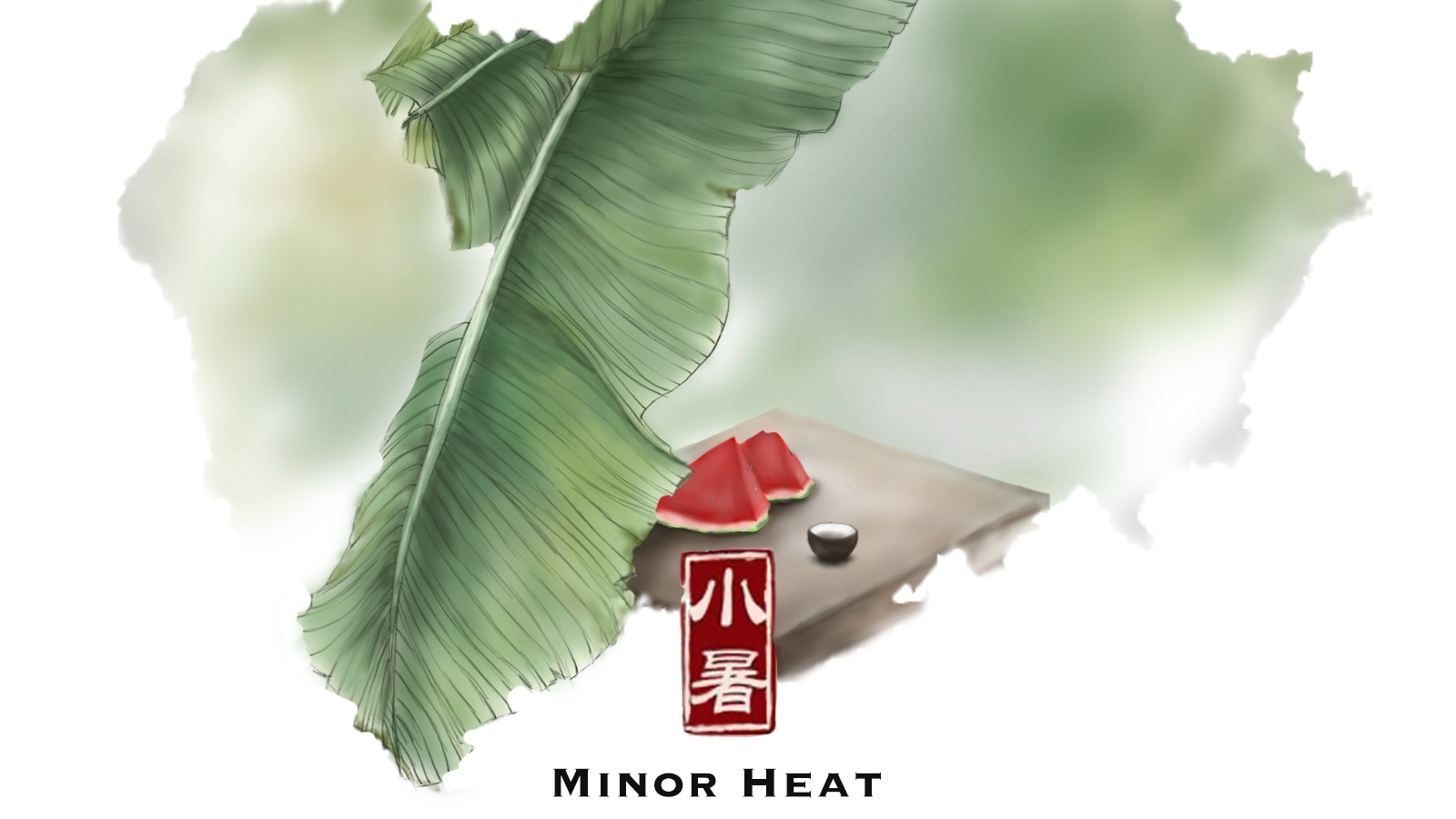
Scorchingly hot days have started to sweep across China, with the average temperature surging to 40°C, prompting high temperature alerts in dozens of cities.
However, it is only the beginning of summer's heat, known as Xiaoshu, or “Minor Heat” in English.
Saturday marks the Minor Heat, the 11th of the 24 solar terms in the Chinese lunar calendar, and the fifth one of summertime. It usually falls around July 7, and is a prelude to the "dog days" – the hottest days of the season.
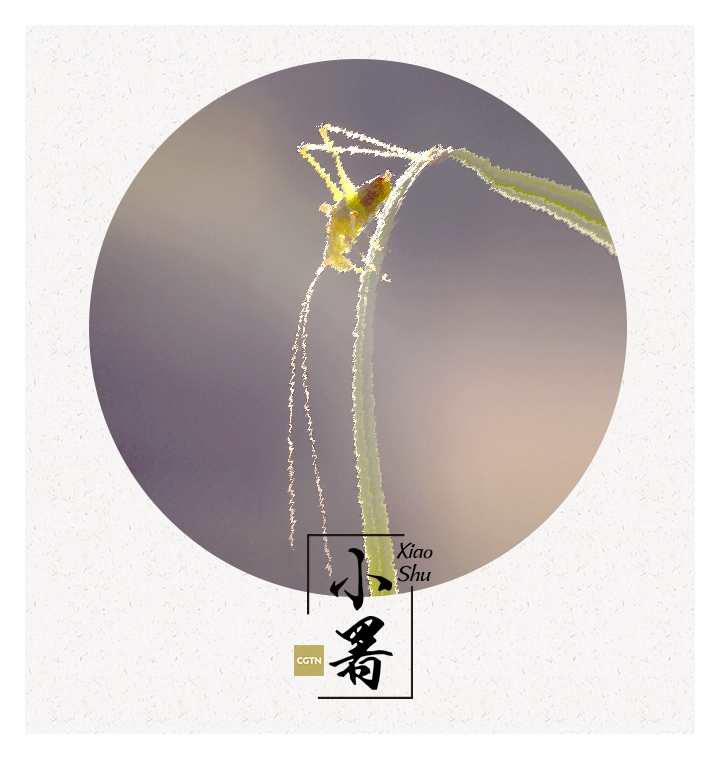
CGTN Photo
CGTN Photo
Heat, thunderstorm and rain
Heat is a keyword during this period, but it's not the only one. The following days will witness thunderstorms, especially in southern China. However, the "plum rain" season is nearing its end, despite lingering around for a few extra days in some years.
The days around Xiaoshu are either very rainy or very dry. The rainy days in the eastern and southern areas of China from July to August could account for 75 percent of the whole year's rainfall. Natural disasters such as floods and landslides are also frequent as a result.
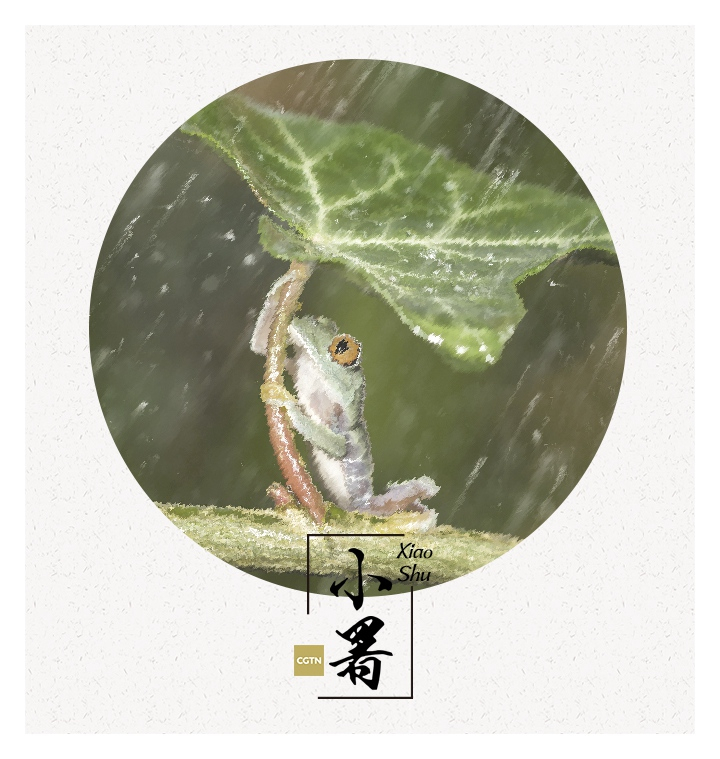
CGTN Photo
CGTN Photo
But it could also be dry if the area is controlled by subtropical high. Thus, in several Chinese folk songs, the farmers were reminded to keep an eye on both extreme weather conditions during this time.
The Chinese wisdom of keeping cool
With the mercury levels on the rise, Chinese people in modern days use parasols, sunscreens, sunglasses when stepping outside, while turning on air conditioners and enjoying refreshingly cold beverages right from the refrigerator at home.
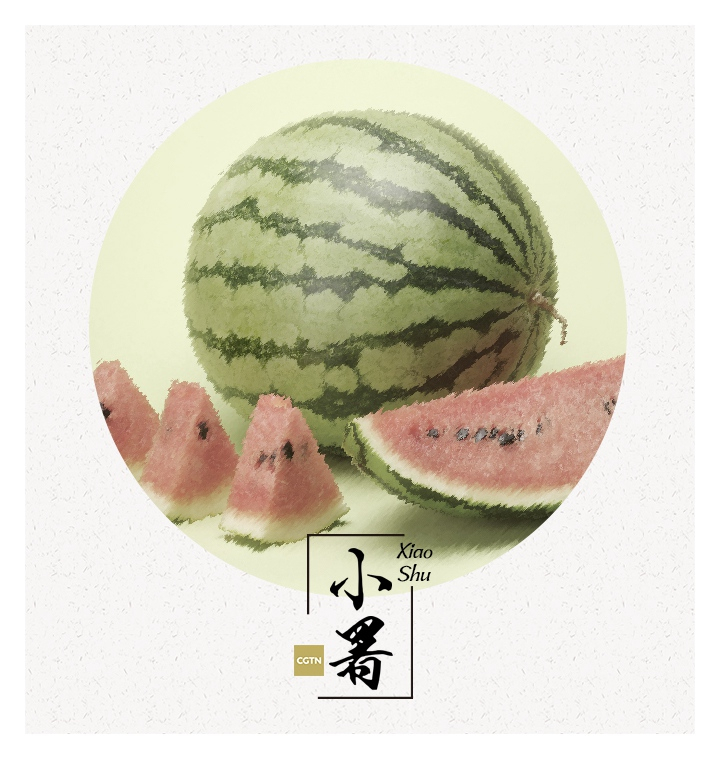
CGTN Photo
CGTN Photo
But before electric appliances became commonplace, the ancient Chinese had their own special ways of beating the heat.
Fans were the basic tools for keeping cool in the summer, and developed into an art form with time. Wells were also good substitutes for refrigerators. People would place fruits in the wells for a while before consuming them.
Ice was also an indispensable part in the battle against the heat, as well as bamboo mats and porcelain pillows. Many of the Chinese ancient structures have also taken into account the need to stay cool in summer, with builders choosing specific materials and structural designs to that end.
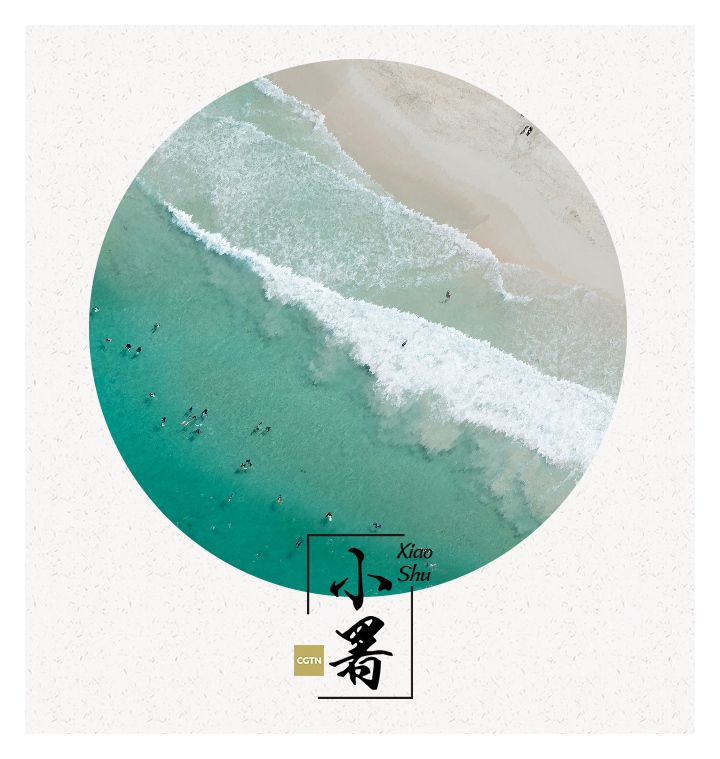
CGTN Photo
CGTN Photo
However, the most important part of the Chinese philosophy to beat the heat lies in the kitchen.
Sweating is helpful
Interestingly, the foods considered suitable for such hot summer days are neither cold dishes nor fruits, but dumplings, noodles and omelettes, to name a few.
According to traditional Chinese medicine, sweating helps human beings expel the harmful substances in the body, and is therefore beneficial.
In some place, noodles are kept in cold water to make them tastier.
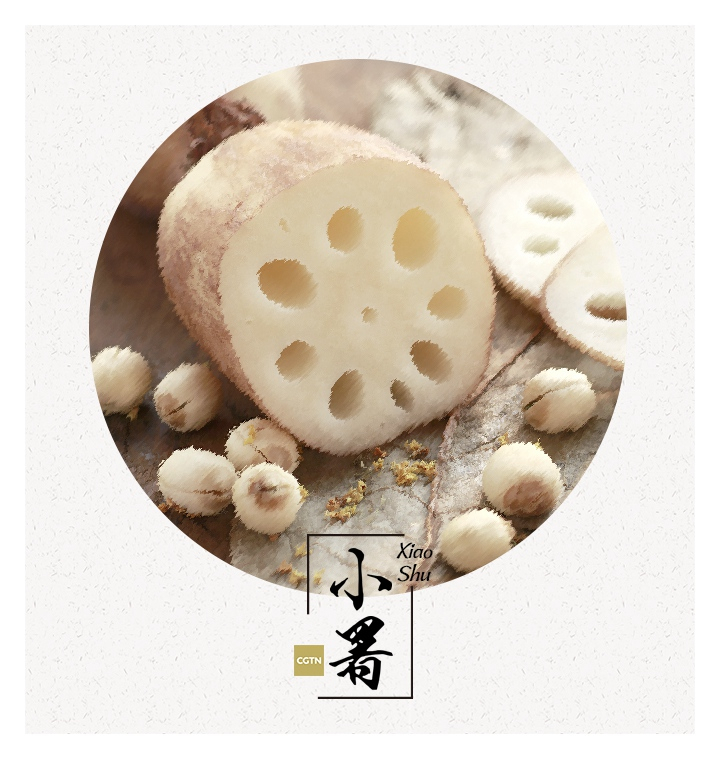
CGTN Photo
CGTN Photo
Another way to cool down is eating congees cooked with different ingredients, such as mung beans, lotus leaves and roots, which are helpful in relieving inflammation and internal heat.
Watermelons, oranges, cucumbers and bitter gourds are all preferable fruits and vegetables during this time of the year.
Chinese people living in different areas also have their own special tricks to combat summer heat. For instance, in the north, people drink plum syrups, and in the south, a cup of iced tea is a refreshing choice.
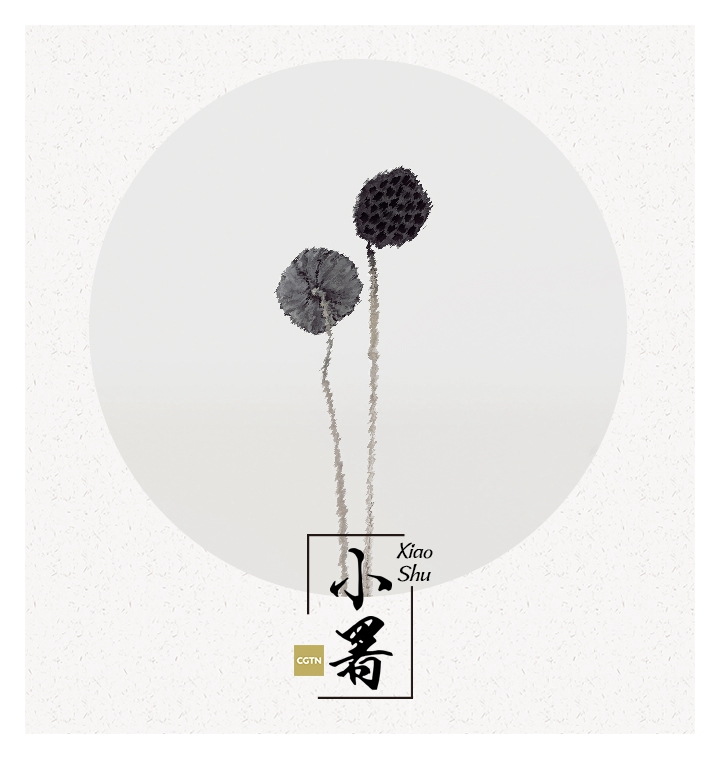
CGTN Photo
CGTN Photo
While a cold can of beer or a cone of ice cream would relieve you from the heat for a while, traditional Chinese medicine advises people against cold drinks or desserts, for the benefit of long-term health.
(Head image by Ma Xiaonan)

SITEMAP
Copyright © 2018 CGTN. Beijing ICP prepared NO.16065310-3
Copyright © 2018 CGTN. Beijing ICP prepared NO.16065310-3